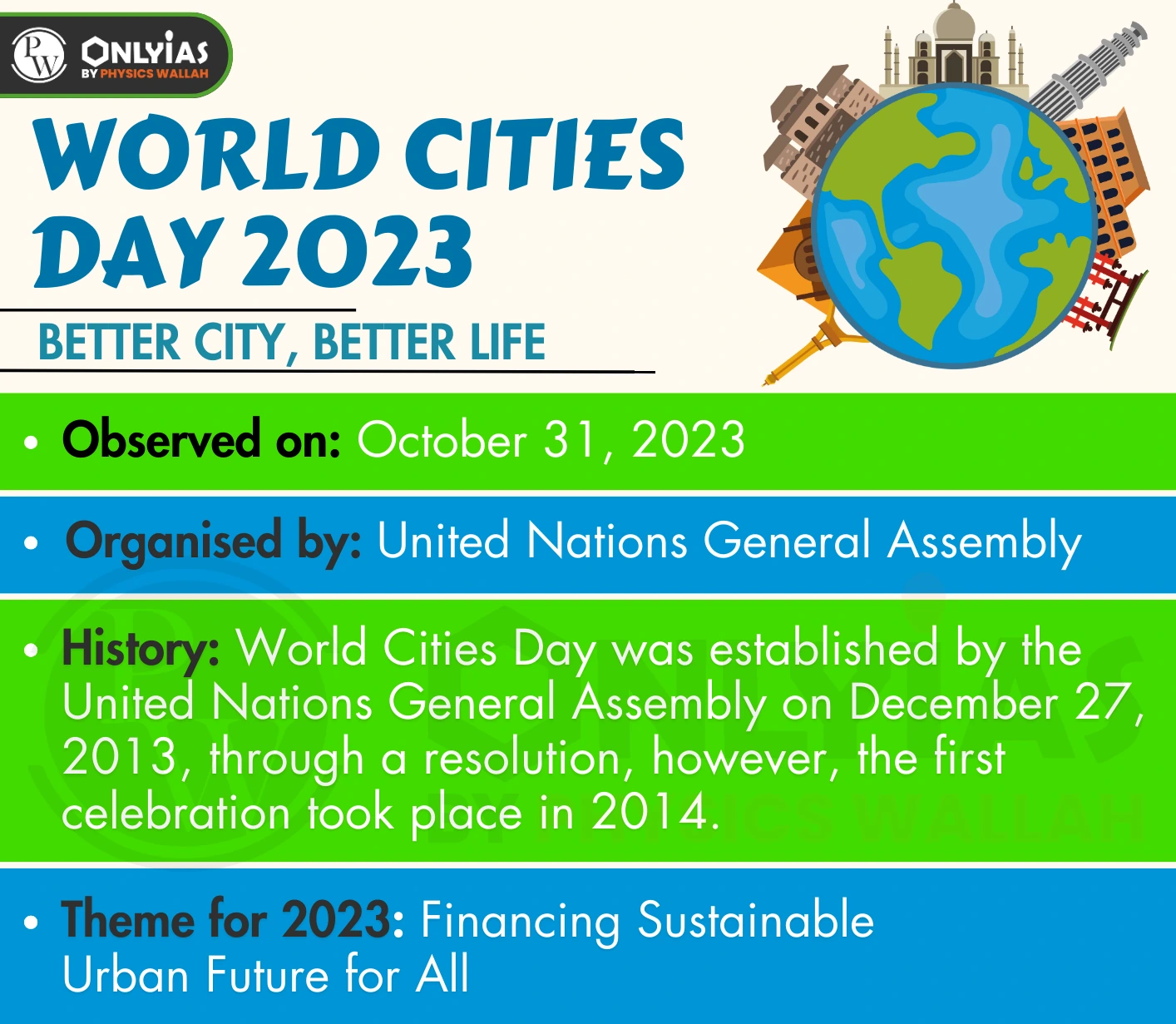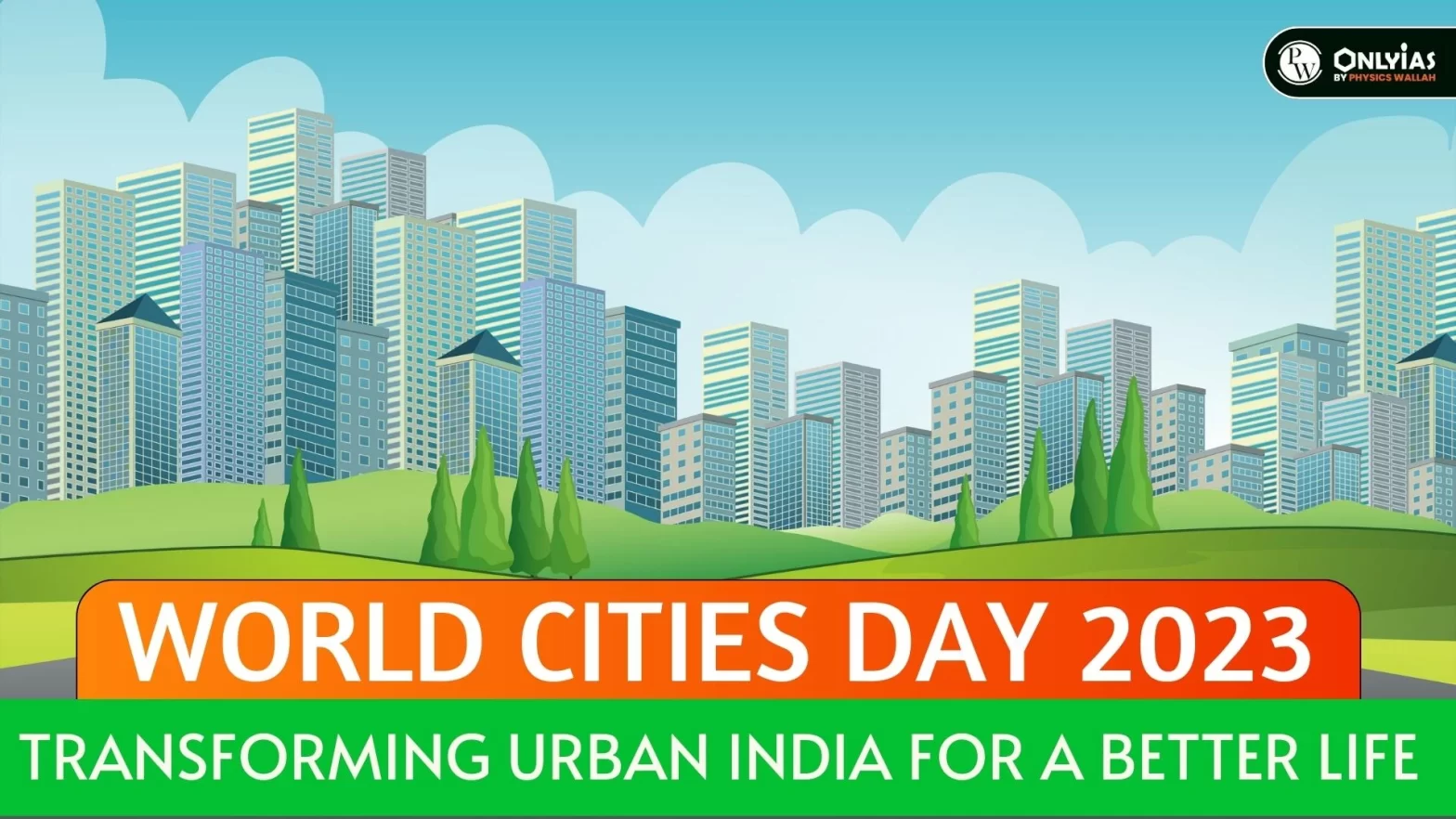Context:
- This article is based on an Editorial “Giving the urban Indian a better life” which was published in the Hindu. World Cities Day is an annual United Nations observance day held on 31st October and the theme this year was “Financing Sustainable Urban Future for All.”
| Relevancy for Prelims: World Cities Day and Graded Response Action Plans
Relevancy for Mains: Pollution in India, associated challenges and steps that need to be taken to address the issue |
Pollution in India – Key Points
- Pollution in India: As per The Energy Policy Institute at Chicago (EPIC) Report, out of the 50 most polluted cities in the world, 39 are in India.
- What are the impacts of pollution in India?
- Life Expectancy: On average an Indian loses 5.3 years of life expectancy due to pollution (for Delhi residents, it is 11.9 years).
- Disease Burden: Pollution results in burning eyes, irritation of the nose and throat, coughing, choked breath, asthma and causing cardiovascular diseases.
- Recently, a media report labeled air pollution in Mumbai as “Death by Breath” due to very unsatisfactory Air Quality Index levels.
- Widespread Issue: Poor air quality is not confined to the Indo-Gangetic plains, it’s getting worse in India’s coastal cities as well.

Why is the problem so acute in Indian cities?
- Urban Growth: Rapid urban development and redevelopment lead to increased pollution levels.
- Diverse Pollution Sources: Pollution sources include road dust, concrete batching, industrial units, and vehicular emissions.
- Vehicular Emissions: Motorized transport alone accounts for 60% of urban pollution, with India’s automobile market expanding significantly.
- Green Space Reduction: The reduction of green spaces, water bodies, urban forests, and green cover in cities worsens the problem.
- Grey Infrastructure: Expansion of “grey” infrastructure, such as dams, roads, and water treatment plants, contributes to pollution.
- Stubble Burning: During North India’s winter, the burning of paddy in states like Haryana and Punjab intensifies the pollution problem.
- Construction Activities: Construction activities, lacking monitoring and control measures, contribute to around 10% of air pollution in the National Capital Region.
Also Read: Air Pollution in Delhi Has Been Getting Worse Since 2021
Way Forward to Address Pollution in Indian Cities
- Focus on Public Transport: Prioritize public transport development with secure pedestrian paths and bicycle lanes. Invest in more buses to meet urban mobility demands.
- Control Private Vehicles: Implement measures to control private vehicular movement, such as congestion taxes during peak hours and odd-even plate formulas. Encourage city leaders and influential individuals to use public transport.
- Adopt Graded Response Action Plans (GRAP): Implement GRAP-like mechanisms in cities to activate anti-pollution measures based on air quality.
- Zero Tolerance for Industrial Pollution: Enforce strict regulations against industrial pollution with real-time monitoring.
- Protect Urban Commons: Prevent encroachment on urban commons like water bodies, forests, parks, and playgrounds. Engage urban communities in their protection and expansion.
- Strengthen Governance and Public Empowerment
- Empower citizens through effective governance structures.
- Disseminate pollution guides and standard operating procedures.
- Encourage people’s support for pollution reduction measures like odd-even plate formulas and “no-car days.”
Conclusion:
Addressing pollution in India is crucial for the well-being of all citizens, particularly the marginalized, who often bear the heaviest burden of its consequences.
| Prelims Question (2016)
Consider the following statements:
1. The Sustainable Development Goals were first proposed in 1972 by a global think tank called the ‘Club of Rome’.
2. The Sustainable Development Goals have to be achieved by 2030.
Which of the statements given above is/are correct?
(a) 1 only
(b) 2 only
(c) Both 1 and 2
(d) Neither 1 nor 2
Ans: (b) |
![]() 6 Nov 2023
6 Nov 2023

